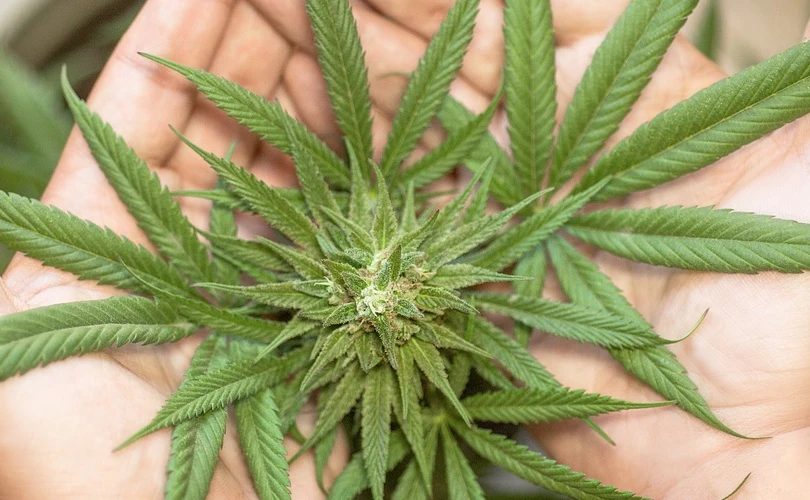Research has indicated that legalizing cannabis has a mixed effect on the usage and addiction of the drug among young people. Several studies have demonstrated, on the one hand, that the legalization of cannabis results in an increase in the population of young people who use it. For instance, research that was published in the journal Pediatrics discovered that the use of marijuana among young people increased by twenty-five percent in states that legalized cannabis for recreational purposes.
Other studies, on the other hand, have demonstrated that the legalization of cannabis does not increase the amount of cannabis used by young people. For instance, research that was published in the Journal of the American Medicinal Association discovered that the incidence of marijuana usage among young people did not rise in states that had legalized cannabis for medicinal purposes.
The consequences of cannabis legalization on the addiction of young people are also contradictory. Over the past several years, the legalization of marijuana has been a highly debated subject, with several states deciding to legalize the substance for both medical and recreational use.
Proponents of Legalization
On the other hand, opponents of legalization have voiced worries about the possible adverse effects on public health, particularly among young people. Proponents of legalization believe it can help lower crime rates and produce cash for the government.
Several studies have demonstrated that the legalization of cannabis results in an increase in the use of the drug by young people. Research that was published in the journal Drug and Alcohol Dependence, for instance, discovered that the prevalence of marijuana use disorder among young people increased by 38 percent in states that had legalized cannabis for recreational use.
The fact that addiction may have substantial long-term implications for young individuals, such as reduced cognitive function, mental health concerns, and an increased chance of substance dependence later in life, is a trend that is cause for worry.
The normalizing of marijuana usage that comes with legalization is probably one of the reasons for the growth in the number of young people who are addicted to marijuana. Young individuals may be more inclined to regard marijuana as a safe chemical when it is legal and freely available. This perception might lead to experimenting, which can eventually lead to addiction among young people.
A further benefit of legalizing is that it may make it simpler for younger individuals to obtain the substance, either via legitimate means or with the assistance of more experienced friends or family members.
THC and Addiction
An additional issue that may be considered is the strength of contemporary cannabis strains. The available marijuana now has THC levels that can be more than twenty percent, making it far more potent than the cannabis that was available many decades ago. The drug’s enhanced strength can make it more addictive and raise the likelihood that it will produce undesirable consequences, particularly in young individuals whose brains are still growing before they reach adulthood.
Despite these worries, many people who support the legalization of marijuana claim that the advantages of doing so exceed the potential drawbacks. In addition to the potential economic advantages, they highlight the fact that legalization has the potential to lower the number of individuals who are jailed for drug offenses that do not include physical violence.
On the other hand, it is essential to take into account the possible influence on young people and to take measures to reduce the likelihood of adolescents developing addictions and other undesirable consequences.
The implementation of stringent rules on the marketing and sale of cannabis, as well as the investment in education and prevention initiatives to assist young people in making educated decisions regarding drug use, are examples of ways in which this may be accomplished.
Cannabis Research
According to the findings of other research, the legalization of cannabis does not increase the number of young people who are addicted to the drug. One example is a research that was published in the journal JAMA Pediatrics. The study discovered that states that authorized medicinal cannabis did not see an increase in the prevalence of marijuana use disorder among young people.
The consequences of legalizing cannabis on the usage and addiction of young people are, on the whole, contradictory. For a complete understanding of the influence that legalization has on the use of cannabis and addiction among young people, further study is required.
Listed below are some of the probable elements that might have an impact on the impacts of legalizing cannabis on the usage and addiction of young people:
Legalization at a younger age: States that have legalized cannabis at a younger age have experienced a more significant growth in the usage of cannabis among a younger population.
The availability of cannabis: States that have a cannabis economy that is more heavily controlled have witnessed a reduced rise in the number of young people using cannabis.
The price of cannabis: States that have higher cannabis prices have seen a lesser growth in the number of young people using it.
Public awareness campaigns: States that have conducted public awareness efforts regarding the dangers of cannabis usage have shown a lesser rise in the number of young people using the drug.
It is essential to keep in mind that the legalization of cannabis is a relatively recent event. Furthermore, additional study is required to get a comprehensive understanding of the long-term consequences of legalization on the use and addiction of cannabis among young people.






